
Coleus Amboinicus: The Forgotten Herb Every Home Should Know About
Rediscovering the Power of Nature: Why Coleus Amboinicus Deserves a Spot in Your Home
In a world where synthetic solutions often dominate the shelves, more and more people are turning back to the time-tested wisdom of natural remedies. One such hidden gem is Coleus Amboinicus, known by various names across the globe—Indian borage, Cuban oregano, or Mexican mint. While it may not enjoy the star status of rosemary or basil, this fuzzy-leaved, aromatic herb has been cherished for generations in traditional kitchens and healing practices.
Whether you're cultivating it on your windowsill or exploring its unique flavor and wellness uses, Coleus Amboinicus might just become your new go-to herbal ally—an affordable, low-maintenance addition to your natural lifestyle toolkit.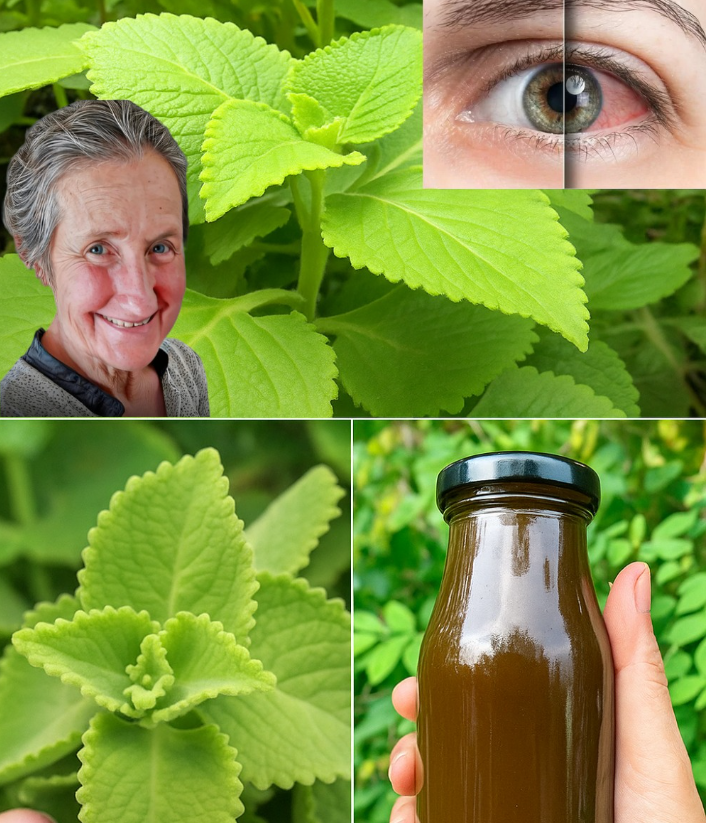
Let’s explore why this resilient plant belongs in every health-conscious home, and how to make the most of its many versatile benefits.
What is Coleus Amboinicus?
Coleus Amboinicus is a perennial herb from the mint family (Lamiaceae). It stands out with its thick, succulent leaves and strong, oregano-like aroma mixed with a peppery and slightly minty flavor. Native to parts of Africa and Asia, it has traveled widely and taken root in homes from South India to the Caribbean, making it a truly global herb.
One of its greatest advantages? It's incredibly easy to grow—indoors or out. Whether you're an experienced gardener or just starting out, this plant is a perfect choice thanks to its hardy nature and minimal care requirements.
Traditional and Emerging Health Benefits
Though scientific research on Coleus Amboinicus is still emerging, it has long been praised in folk and traditional medicine for a range of wellness uses. Here’s how this humble plant may support your everyday health: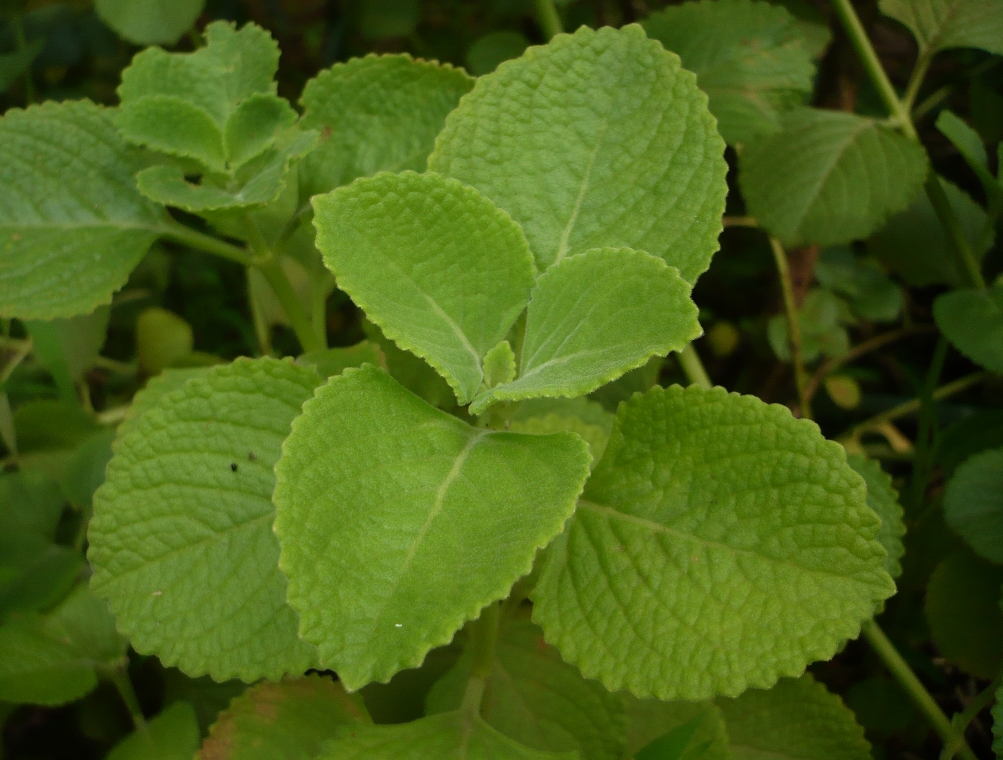
1. A Natural Respiratory Soother
One of the most popular traditional uses of Coleus Amboinicus is as a natural remedy for coughs and throat irritation. The herb contains aromatic oils believed to help open up the airways, calm throat inflammation, and ease minor respiratory discomfort.
-
Chew a fresh leaf or two for quick relief.
-
Steep in hot water for a simple, soothing herbal tea.
-
Add honey, lemon, or ginger for an extra wellness boost.
Some parents in tropical regions even use it gently for children’s cough relief—though always with care and professional guidance.
2. May Support Digestive Comfort
Coleus Amboinicus is known for its carminative properties—meaning it can help ease gas, bloating, and mild indigestion. Traditionally, people have turned to this herb after heavy meals or when facing minor stomach discomfort.
-
Chew a leaf after eating to aid digestion.
-
Brew a warm decoction using dried or fresh leaves.
-
Combine with fennel or cumin seeds for a gut-friendly herbal infusion.
This herb may also help stimulate appetite and balance the gut when digestion feels sluggish.
3. Easy to Grow, Easy to Love
Another standout feature of Coleus Amboinicus is its simplicity. It thrives with very little effort:
-
Place a pot near a sunny window with indirect light.
-
Water only when the top inch of soil dries out.
-
Pinch off the growing tips to keep the plant bushy and encourage new leaves.
And because it propagates easily from cuttings, you can share the herb with friends or start a whole kitchen garden with minimal investment.
4. Culinary Versatility You’ll Love
This herb isn’t just medicinal—it’s delicious. Its bold, aromatic flavor can elevate a wide range of dishes:
-
Add to soups, stews, and bean dishes for extra depth.
-
Mix into marinades, stir-fries, or herbal chutneys.
-
Blend into dips, sauces, or even pestos for a unique herbal twist.
Its flavor is like a fusion of oregano, thyme, and mint—making it a flexible ingredient in both global and local cuisine.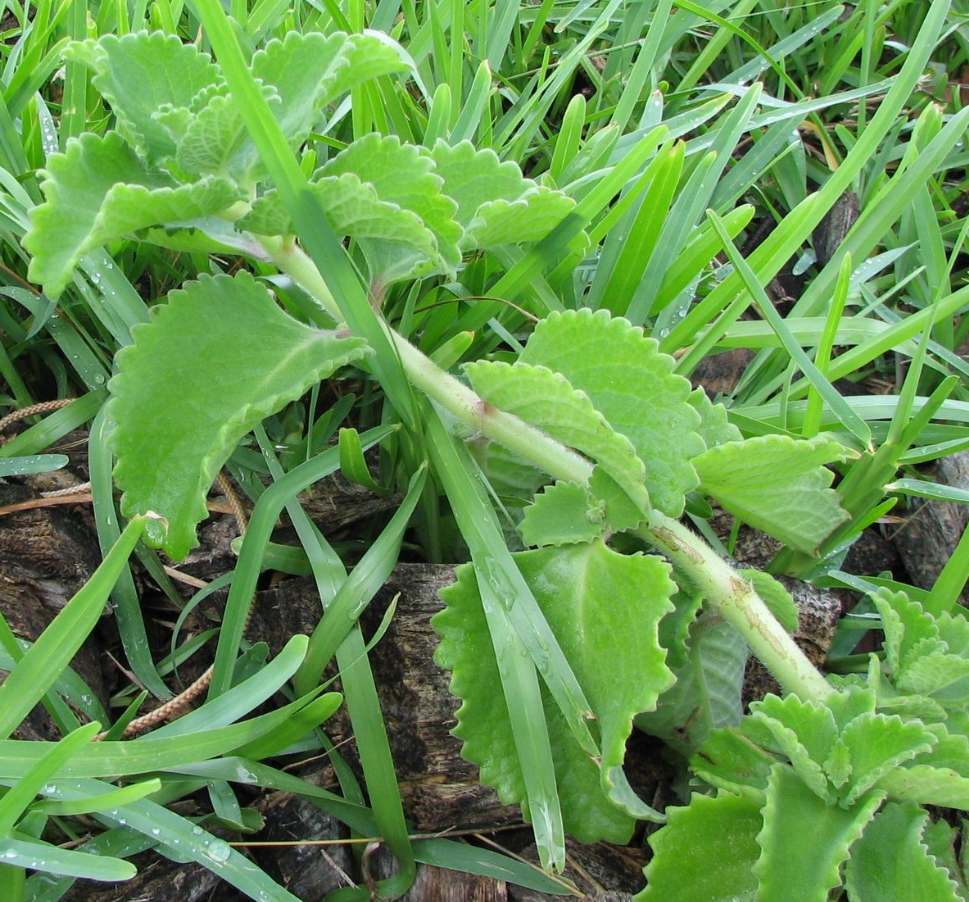
Practical Uses Around the Home
Looking for simple ways to use Coleus Amboinicus every day? Here are a few easy and creative ideas:
🌿 Coleus Relaxation Tea
-
3–5 fresh leaves
-
1 cup boiling water
-
Optional: lemon, honey, or ginger
Steep for 5–10 minutes. Enjoy warm in the evening to relax or after meals to support digestion.
🌿 Kitchen Air Freshener
Crush a few fresh leaves and place them in a small bowl or sachet. The natural scent helps neutralize odors without artificial sprays.
🌿 Herbal Skin Compress
Gently crush fresh leaves into a pulp and apply to clean skin for minor irritation or insect bites. Leave on for 5–10 minutes. Always do a patch test first and avoid using on broken or sensitive skin.
🌿 Spicy Herb Chutney
Blend fresh leaves with:
-
1 clove garlic
-
Juice of half a lemon
-
A pinch of salt
-
1 small green chili (optional)
This chutney pairs beautifully with rice, bread, or grilled dishes.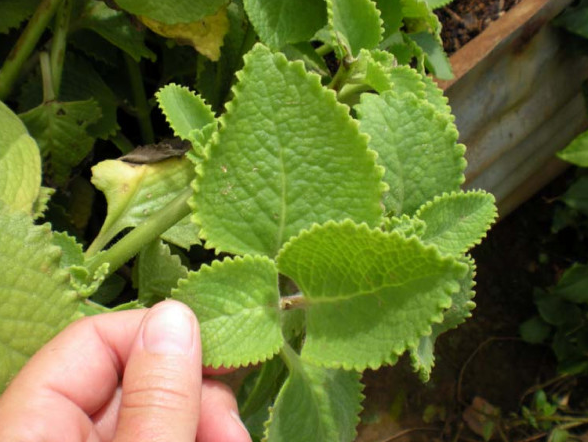
A Word on Safety and Mindful Use
Although Coleus Amboinicus is considered generally safe when used as a kitchen herb or tea, it’s important to follow some basic guidelines:
-
Avoid during pregnancy or breastfeeding unless your doctor advises otherwise.
-
Do a small allergy test first, especially if you’re using it on your skin or drinking the tea for the first time.
-
Not intended as a replacement for professional medical treatment for chronic conditions.
-
Always consult a healthcare provider if you’re managing respiratory, digestive, or autoimmune conditions.
Why Coleus Amboinicus Deserves a Place in Your Life
In many ways, Coleus Amboinicus represents the best of what natural wellness has to offer—it’s simple, accessible, and versatile. Whether you're a culinary enthusiast, a plant lover, or someone seeking natural ways to support well-being, this herb has something to offer.
-
It’s low-cost and sustainable.
-
It fits small spaces and requires little care.
-
It connects you to generations of traditional knowledge and plant-based living.
In short: big benefits in a small, fuzzy leaf.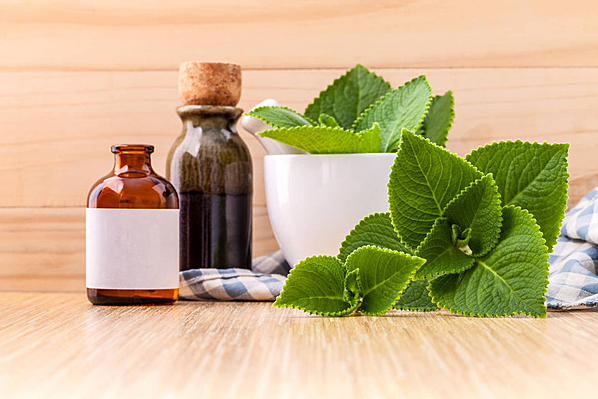
Looking to embrace more green living? Share this article with someone who loves natural wellness, or explore more holistic tips and herbal guides on our site.
Have you tried Coleus Amboinicus in your home? Drop your favorite uses in the comments—we’d love to hear from you!
Disclaimer: This article is intended for informational purposes only. It is not a substitute for professional medical advice, diagnosis, or treatment. Please consult a licensed healthcare provider before introducing any new herb into your routine.
News in the same category


Unlock Radiant Skin Naturally: The Powerful Duo of Vaseline and Tomato for Beauty

If You're Experiencing PAIN And NUMBNESS In Your Legs, STOP EATING These Foods | Vitality Solutions

The Hidden Power of Lamb’s Quarters: Nature’s Humble Wonder

Start Your Day Like This—Your Kidneys Will Thank You Later

Mango Leaf and Clove Tea: A Gentle Herbal Support for Daily Wellness

The Stonebreaker Plant (Phyllanthus niruri): Nature’s Natural Remedy for Liver and Kidney Health
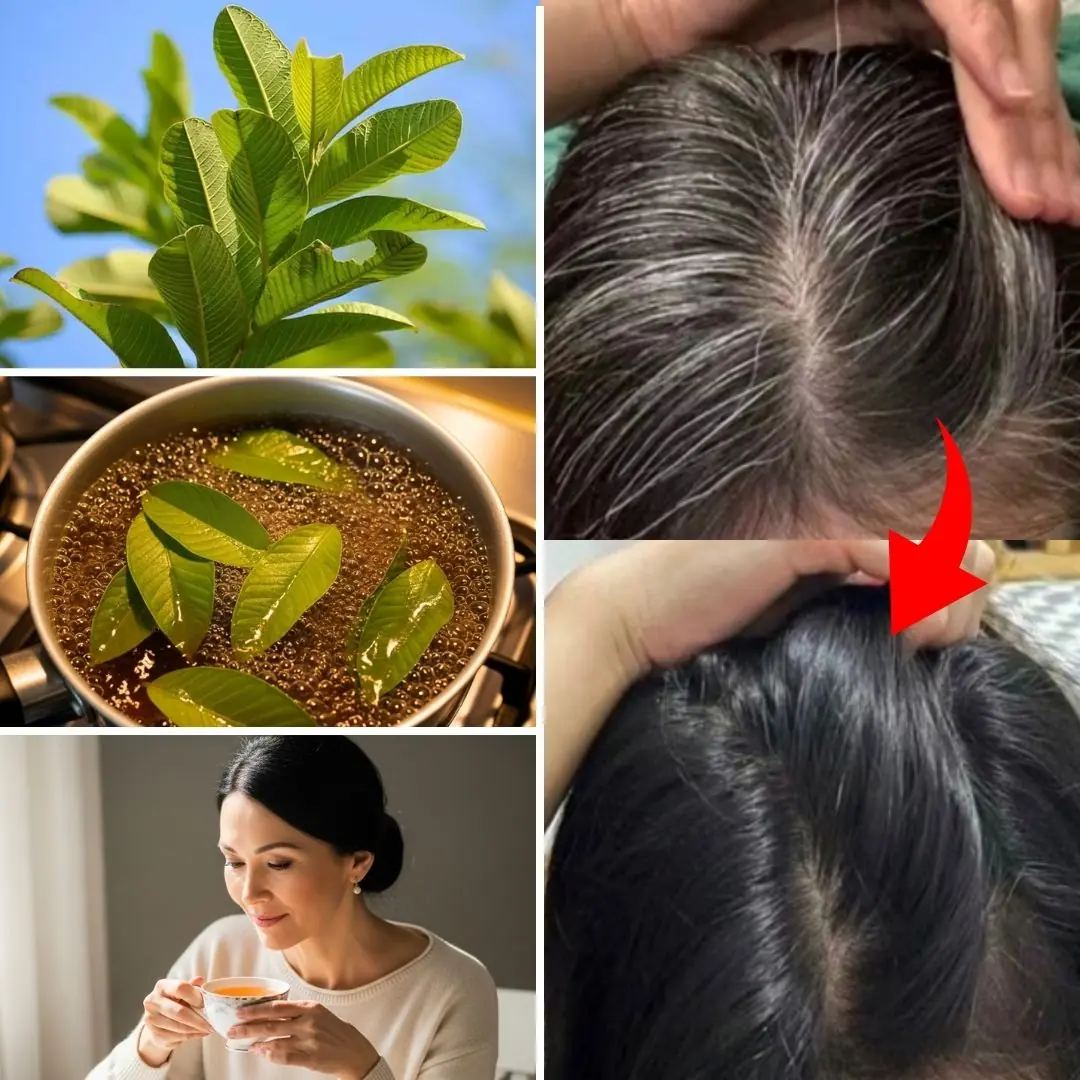
Can Guava Leaves Help with Gray Hair and Hair Growth? Exploring Natural Solutions

The Powerful Trio of Lemon, Apple, and Ginger: A Simple Blend That May Support Skin, Hair, and Vision

Drink Cloves and Cinnamon Before Bed? The Results May Surprise You

Hair Thinning? Try This Unique Combo to Support Hair Growth Naturally

The Ultimate Drink for Women’s Wellness: Watermelon Juice with Carrot, Beetroot, and Ginger

THIS HEALS YOUR THYROID IN JUST 3 DAYS! | Barbara O'Neill’s Clove Soak Formula

8 Herbal Teas That Lower Blood Pressure and Unclog Arteries (Doctors Never Say This!)

15 Powerful Foods to Relieve Acid Reflux Fast – The Ultimate Anti-Acidity Diet Guide

Health Benefits of Cayenne Pepper: 20 Surprising Wellness Secrets

DIY Brow Boosting Serum: Your 5-Minute Secret to Fuller, Bolder Brows

Olive Oil, Lemon, and Honey: Natural Benefits for Health and Wellness

Morning Drinks to Support Healthy Aging and Wellness
News Post

7 Foods You Should Never Reheat or Store Overnight: Dangerous to Your Health

USA: Successful Trial of 'Miracle Drug' That Destroys 60 Types of Cancer

Bitter Mouth Upon Waking: What Does It Warn About? When Should You See a Doctor?

Circus lion was locked up for 20 long years, now watch his reaction when he’s released

The detailed escape story of the Air India crash survivor met with skepticism

For the Cost of an Iphone He made a House of only 89 Squares, but Wait Until you See Inside

A Doctor On TikTok Explains The Risks Of Kissing Dying People

Unleash the Hidden Power of Papaya Seeds: A Tiny Superfood for Big Health Gains

Why Are My Veins Suddenly Bulging and Visible?

Unlock Radiant Skin Naturally: The Powerful Duo of Vaseline and Tomato for Beauty

Liver Damage: 12 Warning Signs & How to Naturally Boost Liver Health

Frozen for 34 Million Years: Lost World Found Beneath Antarctica’s Ice

High Blood Sugar: 13 Early Warning Signs & 9 Strategies to Regain Control

If You're Experiencing PAIN And NUMBNESS In Your Legs, STOP EATING These Foods | Vitality Solutions

The Safest Countries To Be In If World War 3 Begins
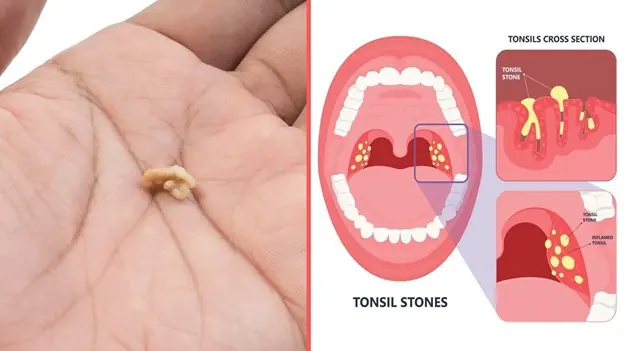
Tonsil Stones: Natural Ways to Remove and Prevent Them

The Hidden Power of Lamb’s Quarters: Nature’s Humble Wonder

Soothe Ear Infections Naturally: Top Home Remedies for Relief
